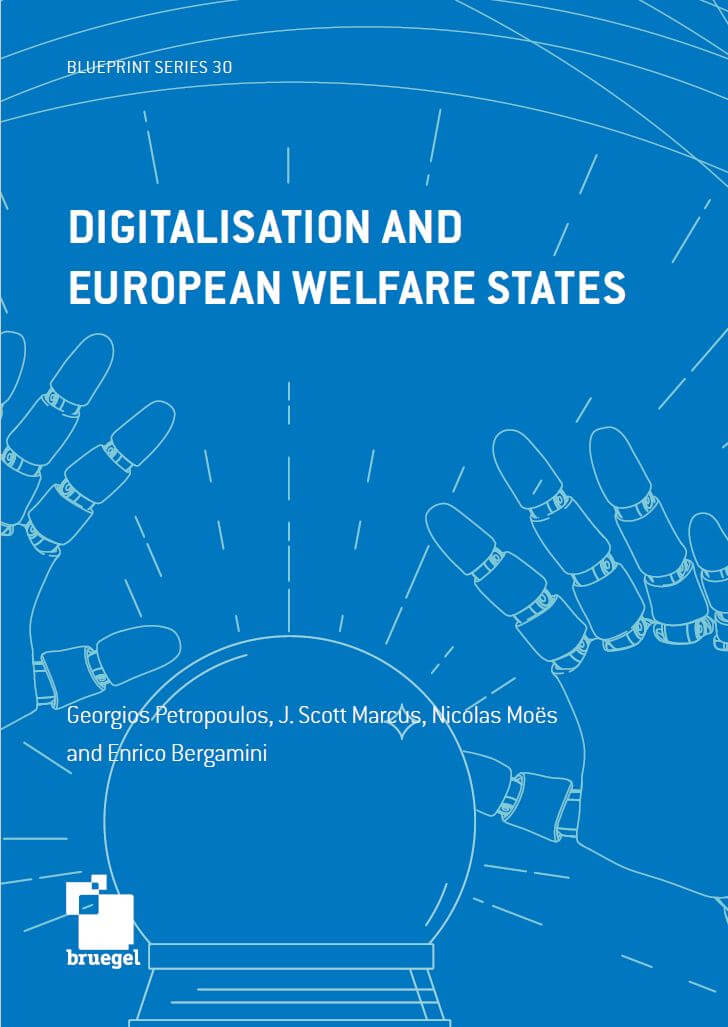Past Event

An alternative mobile operating environment?
Walking the wire: we discuss risks and benefits involved for the EU should it embark on developing a new smartphone operating system.
Past Event

Walking the wire: we discuss risks and benefits involved for the EU should it embark on developing a new smartphone operating system.
Opinion

There are fundamental solvency and liquidity issues for some small Chinese banks, widely influencing both the bond market as well as the broader financial sector. Given the difficulties in creating a level playing field between small and large banks, there is an expectation that small banks will continue to under-perform.
Podcast
Backstage at the Bruegel Annual Meetings, Giuseppe Porcaro talks with session chair Reinhilde Veugelers on Europe's economy in the digital age.
Blueprint

EU policymakers must find answers to pressing questions: if technology has a negative impact on labour income, how will the welfare state be funded? How can workers’ welfare rights be adequately secured? A team of Bruegel scholars, with the support of the Mastercard Center for Inclusive Growth, has taken on these questions.
Blog Post

A proposal in Berlin to ban increases in rent for the next five years sparked intense debate in Germany. Similar policies to the Mietendeckel are currently being discussed in London and NYC. All three proposals reflect and raise similar concerns – the increase in per-capita incomes is not keeping pace with increases in rents, but will a cap do more harm than good? We review recent views on the matter.
Blog Post

A textbook condition of international finance breaks down. Economic research identifies the interplay between divergent monetary policies and new financial regulation as the source of the puzzle, and generates concerns about unintended consequences for financing conditions and financial stability.
Blog Post

The Eurogroup met on June 13th to discuss the deepening of the economic and monetary union (EMU) and prepare the discussions for the Euro Summit. From the meeting came two main deliverables: an agreement over a budgetary instrument for competitiveness and convergence and the reform of the European Stability Mechanism (ESM) treaty texts. We review economists’ first impressions.
Blog Post

A campaign against “nonsense” consensus output gaps has been launched on social media. It has triggered responses focusing on the implications of output gaps for fiscal policy under EU rules, especially for Italy. But the debate about the reliability of output-gap estimates is more wide-ranging.
Blog Post

Longer-term yields falling below shorter-term yields have historically preceded recessions. Last week, the US 10-year yield was 21 basis points below the 3-month yield, a feat last seen during the summer of 2007. Is the current yield curve a trustworthy barometer for future growth?
Blog Post

Investors and the public have been looking at the renminbi with caution after the Trump administration threatened to increase duties on countries that intervene in the markets to devalue/undervalue their currency relative to the dollar. The fear is that China could weaponise its currency following the further increase in tariffs imposed by the United States in early May. What is the likelihood of this happening and what would be the consequences for the existing tensions with the United States, as well as for the global economy?
Blog Post

On May 28th, EU heads of state and government will start the nomination process for the next ECB president. Leaving names of possible candidates aside, this review tries to isolate the arguments about what qualifications the new president should have and what challenges he or she is likely to face.
Blog Post

The quarterly growth rate of the euro area in Q1 2019 was 0.4% (1.5% annualized), considerably higher than the low growth rates of the previous two quarters. This blog reviews the reaction to the release of these numbers and the discussion they have triggered about the euro area’s economic challenges.